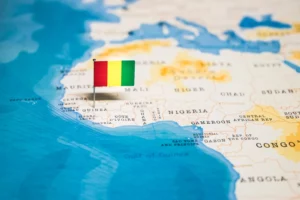(Opinion) Guinea-Bissau and Brazil share historical connections from the Portuguese colonial period.
Since its 1973 independence, Guinea-Bissau has experienced political challenges, including a civil war in the late 1990s.
Umaro Sissoco Embaló, elected in 2020, faced controversy.
His actions after the 2023 parliamentary elections, where he didn’t recognize the opposition’s victory and dissolved the Parliament in December 2023, led to political tensions.
This major political upheaval has also led to state television and radio being seized by heavily armed military personnel, resulting in the expulsion of employees.

Historically, Brazil engaged with Guinea-Bissau in education and security during Lula’s earlier terms. However, Brazil’s recent foreign policy has been less Africa-focused.
With Lula’s return to the presidency, expectations of Brazil’s renewed engagement in Africa arose.
Yet, Brazil’s response to Guinea-Bissau’s current situation has been subdued, especially compared to its past global conflict mediations.
This approach reflects a departure from Brazil’s earlier involvement in anti-colonial support.
For Brazil, as a Global South leader, engaging with Guinea-Bissau could be a step towards advocating for democracy and human rights, thereby strengthening African relations.
Background – Guinea-Bissau’s Unrest: A Test for Brazil’s Diplomacy
In December 2023, Guinea-Bissau’s President Embalo established a new government amidst a crisis and allegations of a coup.
Clashes involving the National Guard and army resulted in two deaths, indicating political divisions.
The new government, comprising both ruling and opposition members, aims to address these issues.
The detention of finance officials over a financial discrepancy and the ongoing instability highlight the country’s challenges.
International organizations like ECOWAS and the UN have condemned the violence and called for adherence to constitutional norms.
In Short, Guinea-Bissau’s political future remains uncertain, with legislative elections pending.

